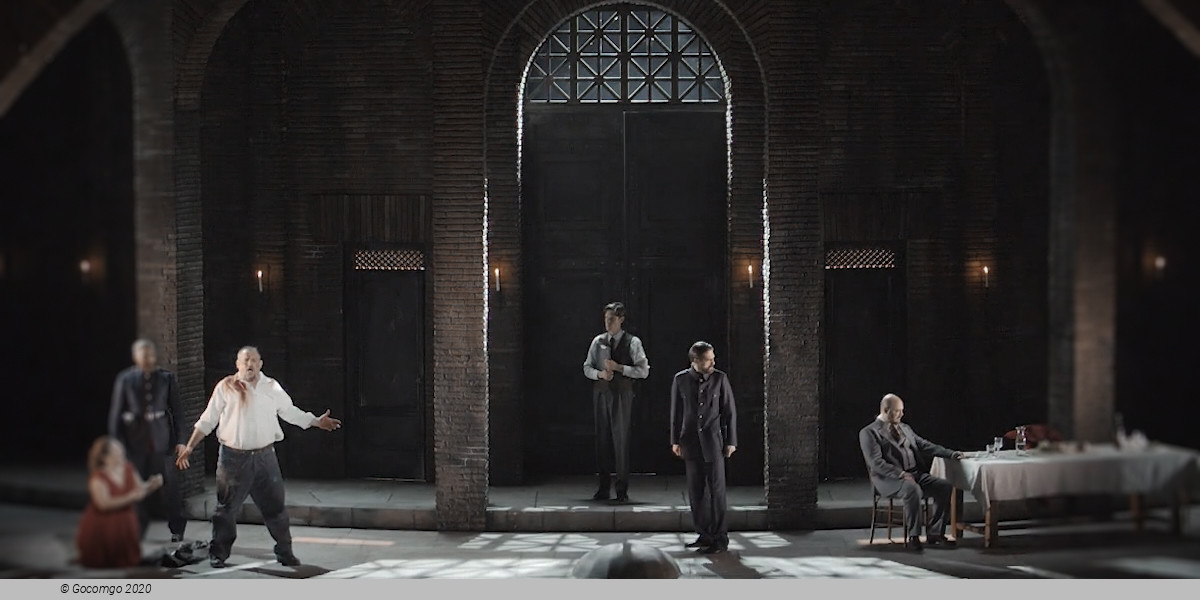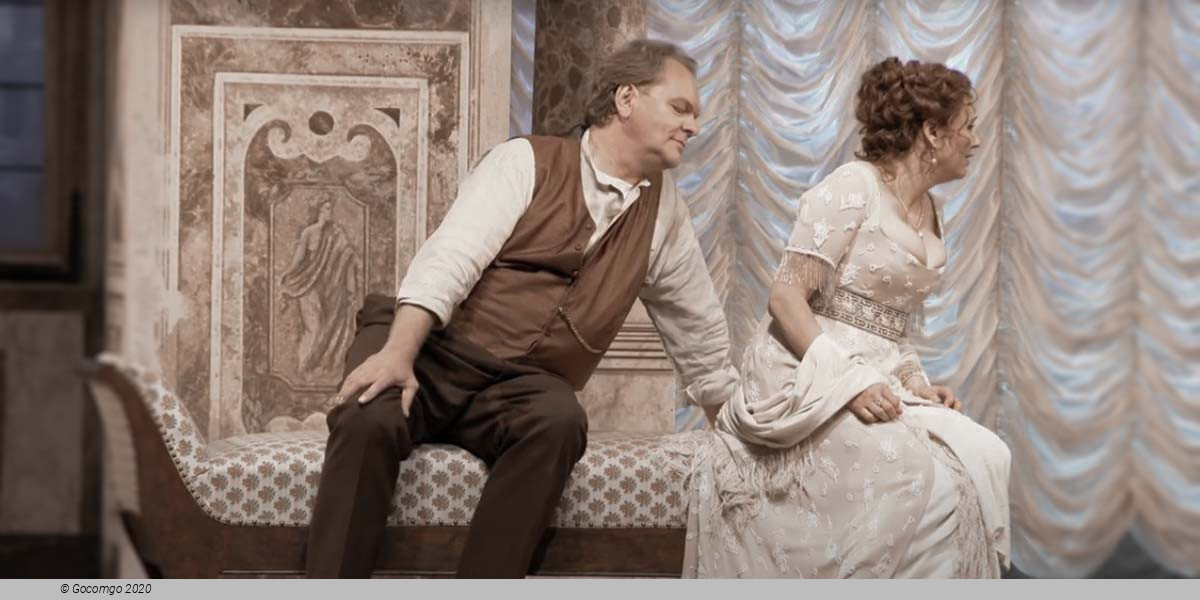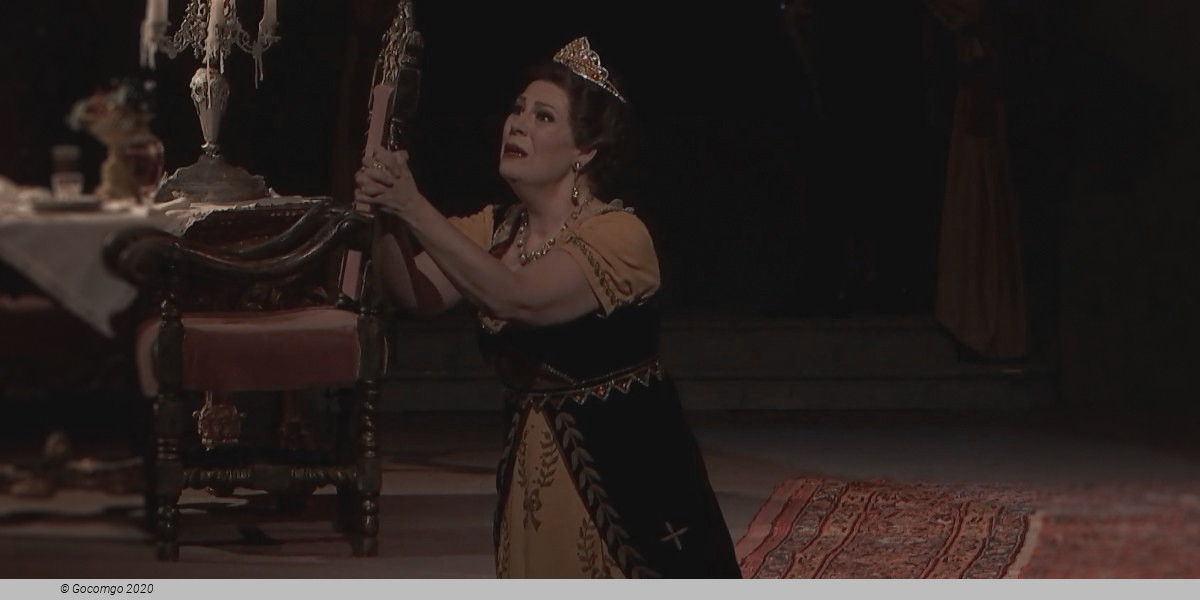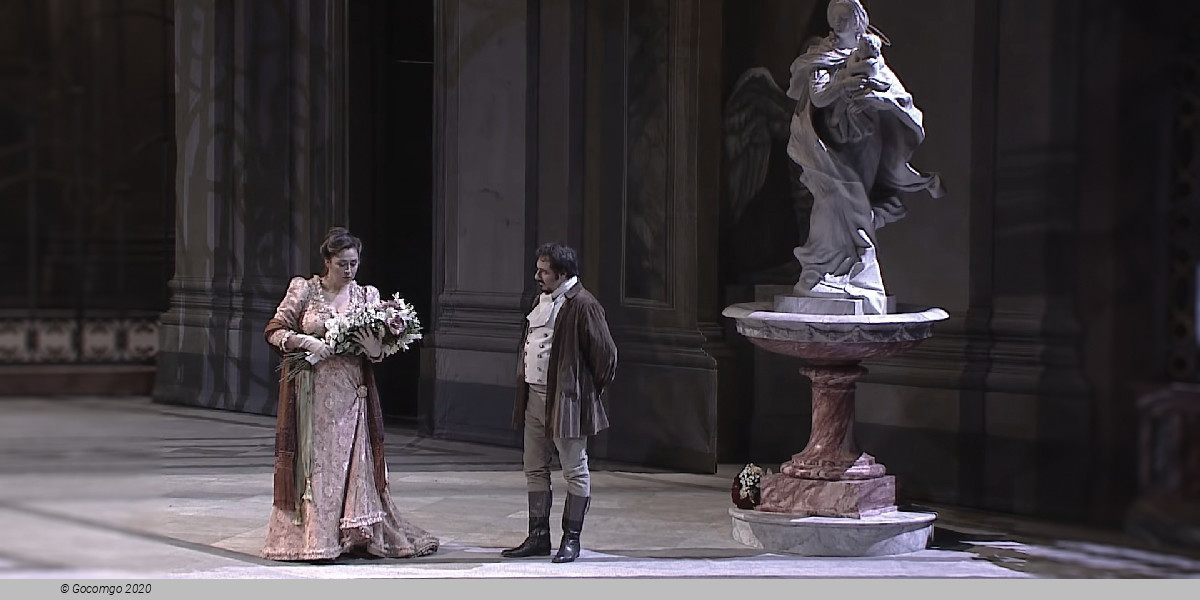Events47 results
About
Victorien Sardou (5 September 1831 – 8 November 1908) was a French dramatist. He is best remembered today for his development, along with Eugène Scribe, of the well-made play. He also wrote several plays that were made into popular 19th-century operas such as La Tosca (1887) on which Giacomo Puccini's opera Tosca (1900) is based, and Fédora (1882) and Madame Sans-Gêne (1893) that provided the subjects for the lyrical dramas Fedora (1898) and Madame Sans-Gêne (1915) by Umberto Giordano.
Early years
Victorien was born in rue Beautreillis (pronounced [ʁy bo.tʁɛ.ji]), Paris on 5 September 1831. The Sardous were settled at Le Cannet, a village near Cannes, where they owned an estate, planted with olive trees. A night's frost killed all the trees and the family was ruined. Victorien's father, Antoine Léandre Sardou, came to Paris in search of employment. He was in succession a book-keeper at a commercial establishment, a professor of book-keeping, the head of a provincial school, then a private tutor and a schoolmaster in Paris, besides editing grammars, dictionaries and treatises on various subjects. With all these occupations, he hardly succeeded in making a livelihood, and when he retired to his native country, Victorien was left on his own resources. He had begun studying medicine, but had to desist for want of funds. He taught French to foreign pupils: he also gave lessons in Latin, history and mathematics to students, and wrote articles for cheap encyclopaedias.
Career
At the same time he was trying to make headway in the literary world. His talents had been encouraged by an old bas-bleu, Mme de Bawl, who had published novels and enjoyed some reputation in the days of the Restoration, but she could do little for her protégé. Victorien Sardou made efforts to attract the attention of Mlle Rachel, and to win her support by submitting to her a drama, La Reine Ulfra, founded on an old Swedish chronicle. A play of his, La Taverne des étudiants, was produced at the Odéon on 1 April 1854, but met a stormy reception, owing to a rumour that the débutant had been instructed and commissioned by the government to insult the students. La Taverne was withdrawn after five nights. Another drama by Sardou, Bernard Palissy, was accepted at the same theatre, but the arrangement was cancelled in consequence of a change in the management. A Canadian play, Fleur de Liane, would have been produced at the Ambigu but for the death of the manager. Le Bossu, which he wrote for Charles Albert Fechter, did not satisfy the actor; and when the play was successfully produced, the nominal authorship, by some unfortunate arrangement, had been transferred to other men. Sardou submitted to Adolphe Lemoine, manager of the Gymnase, a play entitled Paris à l'envers, which contained the love scene, afterwards so famous, in Nos Intimes. Lemoine thought fit to consult Eugène Scribe, who was revolted by the scene in question.
In 1857, Sardou felt the pangs of actual want, and his misfortunes culminated in an attack of typhoid fever. He was living in poverty and was dying in his garret, surrounded with his rejected manuscripts. A lady who was living in the same house unexpectedly came to his assistance. Her name was Mlle de Brécourt. She had theatrical connections, and was a special favourite of Mlle Déjazet. She nursed him, cured him, and, when he was well again, introduced him to her friend. Déjazet had just established the theatre named after her, and every show after La Taverne was put on at this theatre. Fortune began to smile on the author.
It is true that Candide, the first play he wrote for Mlle Déjazet, was stopped by the censor, but Les Premières Armes de Figaro, Monsieur Garat, and Les Prés Saint Gervais, produced almost in succession, had a splendid run. Garat and Gervais were done at Theatre des Varlétés and in English at Criterion Theatre in London. Les Pattes de mouche (1860, afterwards anglicized as A Scrap of Paper) obtained a similar success at the Gymnase.
Fédora (1882), a work that popularized the fedora hat as well, was written expressly for Sarah Bernhardt, as were many of his later plays. This was later adapted by Umberto Giordano, and he made an opera entitled Fedora. The play dealt with nihilism, which was coined from Fathers and Sons by Ivan Turgenev. He struck a new vein by introducing a strong historic element in some of his dramatic romances. Thus he borrowed Théodora (1884) from Byzantine annals (which was also adapted into an opera by Xavier Leroux), La Haine (1874) from Italian chronicles, La Duchesse d'Athénes from the forgotten records of medieval Greece. Patrie! (1869) is founded on the rising of the Dutch Geuzen at the end of the 16th century, and was made into a popular opera by Emile Paladilhe in 1886. The scene of La Sorcière (1904) was laid in Spain in the 16th century. The French Revolution furnished him three plays, Les Merveilleuses, Thermidor (1891) and Robespierre (1899). His play Gismonda (1894) was adapted into an opera by Henry Février. The last named was written expressly for Sir Henry Irving, and produced at the Lyceum theatre in London, as was Dante (1903). The Napoleonic era was revived in La Tosca (1887).
Madame Sans-Gêne (1893) was written specifically for Gabrielle Réjane as the unreserved, good-hearted wife of Marshal Lefevre. It was translated into English and starred Irving and Ellen Terry at the Lyceum Theatre.[citation needed] Later plays were La Pisie (1905) and Le Drame des poisons (1907). In many of these plays, however, it was too obvious that a thin varnish of historic learning, acquired for the purpose, had been artificially laid on to cover modern thoughts and feelings. But a few — Patrie! and La Haine (1874), for instance — exhibit a true insight into the strong passions of past ages. L'Affaire des Poisons (1907) was running at the Théâtre de la Porte Saint-Martin and was very successful at the time of his death. The play involved the poisoning camarilla under Louis XIV of France. Toward the end of his life, Sardou made several recordings of himself reading passages from his works, including a scene from Patrie!





